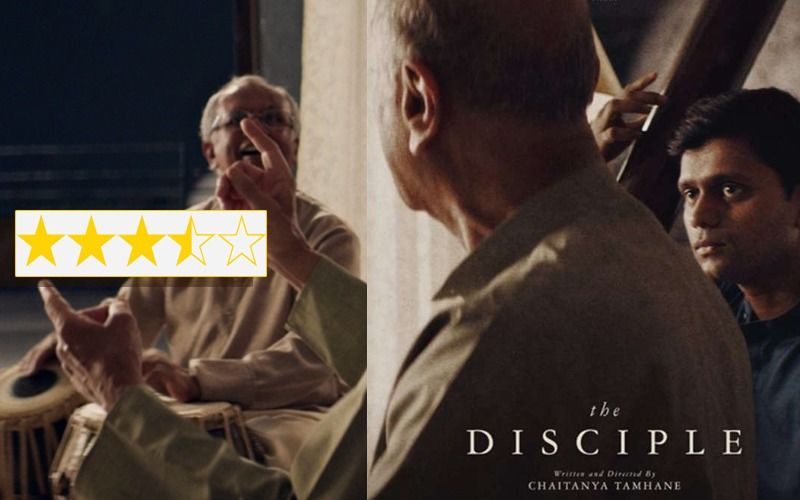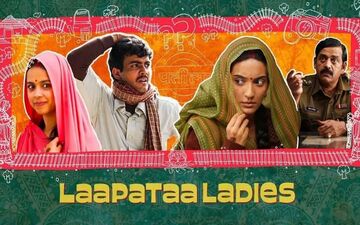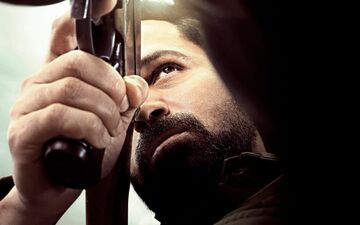The Disciple REVIEW: Aditya Modak And Arun Dravid Starrer Is Admirable But Not Likeable
The Disciple is a 2020 Marathi drama film that features Aditya Modak and Arun Dravid. Here's my review of the Chaitanya Tamhane directed film.


Being the second Indian film after Mira Nair’s Monsoon Wedding to be screened in the Main Competition at the Venice Film Festival, The Disciple comes to us with the badge of approval from the Western hemisphere.
This always helps a film get more attention than it would usually get. The Disciple needs all the help it can get to get attention. It is not an attention-seeking work. Like director Chaitanya Tamhane 2014 debut film Court(also in Marathi) The Disciple is not anxious to draw us the audience into its world of Maharashtrian workingclass anxieties which open up in his cinema with the least fuss. Chaitanya spends no time explaining the cultural specificity.
Want to know more about the diminishing impact of Hindustani classical music? Google before viewing the film. Tamhane is of no help.
In Court it was the workings of the provincial litigation courts. In The Disciple it is the rapidly-evaporating world of Hindustani classical music, a moribund world that is rapidly going from ragas to the opposite of riches. The practitioners and exponents of classical vocals in North India (and its counter-part, Karnatik Sangeet in the South of India) are on the verge of extinction and starvation.
Chaitanye Tamhane’s hero is a young struggling borderline-failure Hindustani classical vocalist Sharad Nerulkar(Aditya Modak). A man who refuses to move with the times and would rather spend time listening to a female classical legend named ‘Maai’(mother) ladling out sermons on anarchic tapes rather than going out into world to see how the arts (fine or otherwise) are doing.
Fortunately or not, Chaitanya Tamhane’s camera(manned by Michał Sobociński) is even more immovable than the protagonist, if that is possible. There are lengthy patience-challenging shots capturing Sharad performing on a functional stage in a modest auditorium with creaky fans and a restless audience moving in and out more interested in the snacks than the recital.
You have to be witness to one of these small-town classical-recital performances in a stuffy auditorium to know how self-defeating the exercise is. Tragically the film echoes a similar disassociation of sensibility between the audience and the bereft protagonist whose anguished recognition of and acknowledgement of his own failures is rarely allowed to connect emotionally with us.
There is scarcely a closeup of the lead actor Aditya Modak who incidentally is a Hindustani classical vocalist in real life. Modak does his own singing on stage for his character Nerulkar, of course. When Nerulkar is not singing he is seen riding his motorbike down a solitary highway meditating to the melancholic thoughts of one more post-concert depression. And if he is not brooding over his failure, he is self-pleasuring to porn on the internet.
Or staring at the television, bristling at a reality-show contestant who has re-invented her art to a kitschy accessibility. Modifying the classical art to suit a larger audience is not really as bad a thing as purists would like us to believe. In this sense director Chaitanya Tamhane and his protagonist Sharad Nerulkar are sailing in the same boat.
Tamhane’s vision, though admirable in its astuteness and austerity, precludes populism. Nerulkar’s defining relationship with his music guru (Arun Dravid) lacks the emotional warmth and appeal of the guru-shishya relationship in the 1980 film Shankarbharnam (Telugu, directed by K Vishwanath) which also dwelled on the erosion of the classical element from Indian music.
At one point the Guru(played with laudatory naturalism by a non-actor) tells Nerulkar that his stage performances are repetitive and showoffy. “You don’t know where to stop,” the Guru rebukes his protégé.
In The Disciple, Tamhane knows exactly where to stop. It makes you long for an emotional freedom and spontaneous bursts of unrehearsed energy denied to films and filmmakers who think populism is death.
Image source:-Wikipedia






